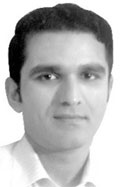Freedom?

By Yaqoob Khan Bangash
May 02, 2015
A few years ago, I had a conversation with an Indian Muslim on a bus. The elderly gentleman asked me: “Why was Pakistan made?” Knowing that this might not go well, I told him succinctly that “it was created for the Muslims of India, so that they could live their lives peacefully and without fear of the Hindus”. To this the gentleman replied: “Have you been to Jama Masjid in Delhi or any other mosque?” After I answered in the affirmative he asked: “Did you go through extensive checking at the mosques or did you fear for your life as you entered the mosque?” The conversation ended there for a bit, the point was made. A few minutes later he asked me: “How many people are killed in sectarian killings in Pakistan?” I shook my head and answered: “Thousands every year.” Again, he gave me a look and I tried to look the other way.
The point of the conversation narrated above was — and is — not that Partition was a bad thing and should be undone. Pakistan has now been created and it should and will remain a distinct entity. There needs to be no doubt about it. However, what the conversation above should remind us is that we have lost track of the original purpose of the creation of the country. More Muslims live in fear in Pakistan than in India and thousands more Muslims have been killed in Pakistan on religious and sectarian grounds than in India since independence.
A couple of years ago, the All-India Majlis-e-Ittehadul Muslimeen’s head, Asaduddin Owaisi, lamented that the Muslims of India had been left behind in education when compared with other religious communities. While Owaisi’s comment led many to point out how Muslims were suffering in India, these pundits forgot to mention that Owaisi noted that the Muslim literacy rate was 67.6 per cent. This is about 20 per cent more than the literacy rate in the Islamic Republic of Pakistan. It is only in job attainment that Pakistani Muslims fare better than their Indian brethren, but that is simply due to the fact that in Pakistan there are no other options. With Muslims forming 95 per cent of the population there is little chance that any other community can get more jobs no matter what the condition of the Muslim community in the country. This factor also brings in money and other emoluments, giving us a sense of false security and superiority.
The recent spate of killings in Karachi, from Sabeen Mahmud to Professor Waheedur Rahman, has made me think about our understanding of ‘freedom’. Often we talk about the minorities in Pakistan, those five per cent or so who are under intense pressure, who routinely get abused and killed without much comment, and who are treated almost nonchalantly as second-class citizens of the country. But what about the 95 per cent majority? This country was made for them. But even they are being routinely killed by those who think they are better Muslims than the slain ones, who think that they need to ‘purify’ this land from people they think are not ‘Muslims’ or ‘good enough’ Muslims. These custodians of the ‘true Land of the Pure’ have created such a regime of fear that let alone the minorities, most Muslims are fearful of practising their religion publicly. Muslim denominations — including the one of which the founder of the country was a member of — which were at the forefront of the independence movement are now fearful of publicly declaring their sect and have to practise their religion behind barricades.
The right to life is the most fundamental right in a society. From it stems other rights such as freedom of association, expression, education, equal treatment before law, and so on. Pakistan is sadly failing in the provision of this fundamental right. Even the leaders of the freedom movement would have never thought that one day Pakistan would fail in ensuring this basic right.
Can we please focus on guaranteeing this right and make our freedom worthwhile?
Yaqoob Khan Bangash teaches history at Forman Christian College Lahore and tweets @BangashYK
Source: http://tribune.com.pk/story/879270/freedom/




 Moderate Islamist here
Moderate Islamist here


0 comments:
Post a Comment